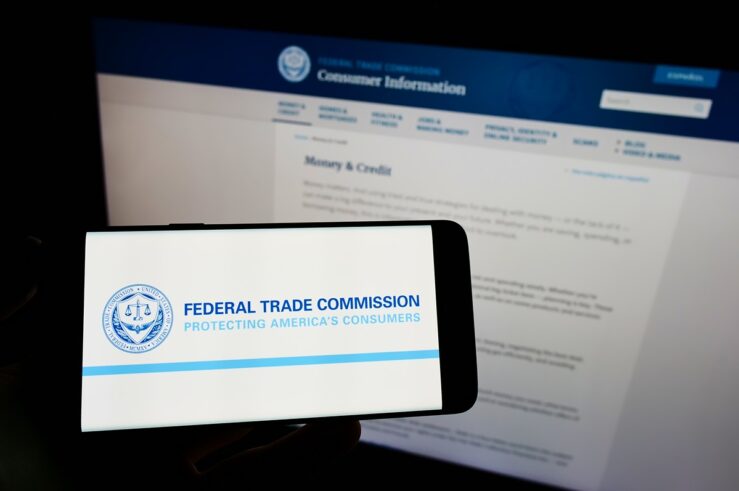I had the opportunity to present Treasury Inc.: How the Bailout Reshapes Corporate Theory and Practice at the American Association of Law Schools conference session on Business Associations in January. It was an engaging experience that I found particularly fun as I am from Louisiana and used to live in New Orleans. The audience was a veritable who’s who of the corporate law academy, including Bob Clark (former Dean of Harvard Law), Christine Hurt (of Conglomerate fame), Joan Heminway (whose recent Securities Regulation textbook is a must read), Brett McDonnell (whose recent Delaware scholarship offers fascinating insights), and a number of other notable writers in this area. The opening panel was moderated by Lisa Fairfax (also of Conglomerate fame) and featured Renee Jones (see her blog), Hillary Sale, and Jeff Gordon (great paper on say-on-pay here) among others. Lots of old friends who have helped me along my career. Joining me in presenting papers were Bruce Aronson as well as Miriam Cherry and Jared Wong. It was a professional and well attended panel, and I encourage all business law scholars to attend next year.
A number of the discussants at the panel focused their attention on Delaware. This is certainly appropriate, as Delaware is the corporate home of nearly 70% of the Fortune 500 and half of the 14,000 publicly traded companies in the United States. Most of the academy has a contentious relationship with the Delaware courts and an inordinate number of academics dedicate their time to attacking the Delaware model of corporate law. (For the Don Quixote of anti-Delaware scholarship, see Jay Brown at U. Denver) The AALS panel discussion on Business Associations this year mirrored that tendency in the corporate law scholarship.
As the only member of the academy, to my knowledge, who has clerked in the Delaware Court of Chancery (or any Delaware court for that matter) I often find myself on the less populated side of the debate. (Side note: Constitutional law scholarship seems to be overrun with former Supreme Court clerks, one would imagine more Delaware expertise would be required in corporation law?). Some may assert this as evidence of bias in my remarks, in much the same way that scholars who respond to a pro-regulatory herd mentality may also exhibit bias. I’ll let readers judge that question. I will, however, offer that my viewpoint is far more informed than most of Delaware’s critics. I’ll also note as counterpoint that I remain a proud student and acolyte of Professor Bebchuk, a noted critic of Delaware. I’m proud to say that Lucian has forgotten more about corporate governance than most of the anti-Delaware critics who have followed in his footsteps. Though we disagree on a great many issues, I judge other critiques of Delaware against Lucian’s robust methodology, which is in part why I find much of the surplus anti-Delaware scholarship ultimately unconvincing.
The theme of the AALS panel on Business Associations was “The Financial Collapse and Recovery Effort: What Does it Mean for Corporate Governance?” A summary of Lisa Fairfax’s excellent discussion on clawbacks for executive compensation can be found here. Erik Gerding has also compiled a great summary of the full discussion here and here. The portion of the discussion relating to Delaware was focused around the question of: “Can we rely on Delaware to solve the crisis?” and “Can Delaware serve as a regulator of systemic risk?” The specifics of that discussion focused on the outcome of the Citigroup case. I will save my response to the panel’s particular comments on the Citigroup case for a moment, and first take issue with the broader question presented by the panel. Is Delaware the appropriate forum for regulating systemic risk? Absolutely, definitively, no. Delaware is not designed to deal with that question, and it does not assert such jurisdiction.
The confusion is easily explained: the Delaware Courts are designed to deal with large scale business transactions, and rarely does a week go by without a Delaware Court of Chancery case appearing in the Wall Street Journal. Issues of systemic risk relating to large publicly traded investment banks have also tended to make the front pages of the Wall Street Journal during the crisis. This is however merely a matter of coincidence. Delaware adjudicates conflicts between shareholders, companies, their boards of directors, and their executives. These conflicts are decided on a case-by-case basis. The Delaware judiciary does not have the constitutional authority, nor does it possess a policy advantage, to serve as a nation-wide regulator of systemic risk. For that matter, neither does the SEC (which is often described by Delaware critics as Delaware’s antipode). The SEC has a mandate to protect investors and encourage capital formation under the 33 and 34 Acts, but it possesses neither a mandate nor sufficient expertise to regulate the investment community to police leverage. This is particularly true in light of the Department of Housing and Urban Development’s superseding authority over the leading source of systemic risk (to the tune of a recent $400 billion dollar backstop from the Treasury Department), namely Fannie Mae and Freddie Mac.
The AALS panel also focused on the Citigroup case as its shining example of Delaware corporate law gone astray. I feel compelled to respond accordingly. In that case, the plaintiff sought to evade Section 102(b)7 of the Delaware General Corporation Law, which permits Boards to opt out of liability for good faith violations of the duty of care, by arguing that the Board of Citigroup “failed to act” in its oversight of risk management. The subject of the Citigroup plaintiff’s challenge was essentially subprime mortgage bets by Citigroup. Chancellor Chandler noted that the plaintiff’s reading would have eviscerated the Delaware legislature’s intent in enacting 102(b)7 by allowing plaintiffs to allege that, despite an initial good faith and well considered decision to undertake an investment opportunity, a board could be found liable after the fact for its failure to “oversee” the progress of that opportunity.
First, the AALS panel’s view seems to encourage judicial activism on the part of the Delaware Court of Chancery to ignore the Delaware General Corporation Law. Even more surprisingly, they begin from a clearly hindsight-biased view of Citigroup’s risks. The tenor of the discussion was in the order of “well, clearly, Citigroup’s board made bad decisions, because they lost lots of money.” This is precisely the sort of thinking that the DGCL, in particular Section 102(b)7, is designed to avoid. Hindsight bias built into corporation law would cripple the ability of boards to invest resources in risky propositions, because boards would fear ex ante the potential liability of good faith but uncertain investments that subsequently lost money.
And if you don’t think the AALS panel’s view on Citigroup’s investments is overwhelmingly colored by hindsight bias, consider remarks by Chairman Ben Bernanke, who in 2006 said that the housing market “will most likely experience a gradual cooling rather than a sharp slowdown” and who in 2007 noted that “the impact of subprime loans on the broader economy and financial markets are likely to be contained.” Readers should certainly not take my quotes of Bernanke as a critique of him. Though I personally feel the Fed is overly lax in monetary policy these days, that’s another issue. My point is that one of the smartest, most informed, and least conflicted financial regulators felt in 2006 and 2007, at the height of the events of the Citigroup case, that subprime was a relatively riskless bet. As such, I take severe issue with the “conventional wisdom” at the AALS that the Citigroup case was a slam dunk against Chancellor Chandler’s decision.
Let’s also not forget that the Delaware Court of Chancery decided to permit the waste claim to survive at that stage in the litigation, and it survives to this day. I realize that waste claims rarely result in ultimate judgment against the defendants, but then again most all claims in civil court rarely result in ultimate judgment against the defendants. If Delaware was such a rigged game in favor of defendants, as the AALS panel seemed to suggest, why would Chancellor Chandler have permitted the waste claim to survive, knowing it would give the plaintiffs continued leverage to demand some form of award in settlement negotiations?
I will close with two general critiques of Delaware’s critics that applies both to some of the recent commentators at the AALS panel and also to the anti-Delaware vein of scholarship generally. Don’t get me wrong… I won’t argue that Delaware is perfect, but I will take issue with a lack of sophistication in much of the criticism. My first point is that the anti-Delaware crowd lumps the various institutions of Delaware together as though it were a single entity. This could not be more inaccurate. In the interest of brevity in this blog post, I will only note 10 relevant institutional players in Delaware, although to respond justly I should dedicate a summer to an article that atomizes the players in more depth. There are significant conflicts of interest among the Delaware Court of Chancery, the Delaware Supreme Court, the Delaware litigation defendant’s bar, the Delaware litigation plaintiff’s bar, the Delaware deal advisory bar, the out of state (particularly NY) deal advisory bar, the Delaware Committee on Corporate Laws, the Delaware Legislature, the Delaware Governor’s office, and the Delaware Secretary of State (responsible for incorporating entities).
My second broad critique of the anti-Delaware crowd is that they seem to ignore that if Delaware were such an anti-shareholder jurisdiction, we would expect to see a share price discount for Delaware publicly traded entities against shares in other companies. As such, we should also expect to see new IPOs featuring non-Delaware corporations in the hopes of obtaining a premium. We see neither. In fact, 70% of all IPOs in 2005 were Delaware corporations. Furthermore, the only empirical evidence on point is in precisely the opposite direction… empirical evidence suggests that Delaware firms trade at a substantial premium to other firms (see Roberta Romano’s work here and Robert Daines’ work here).




